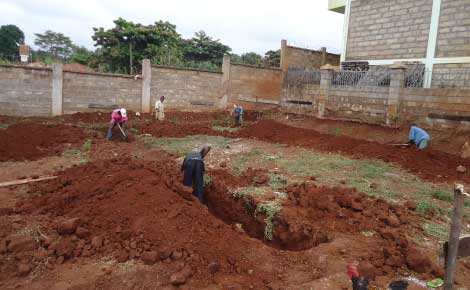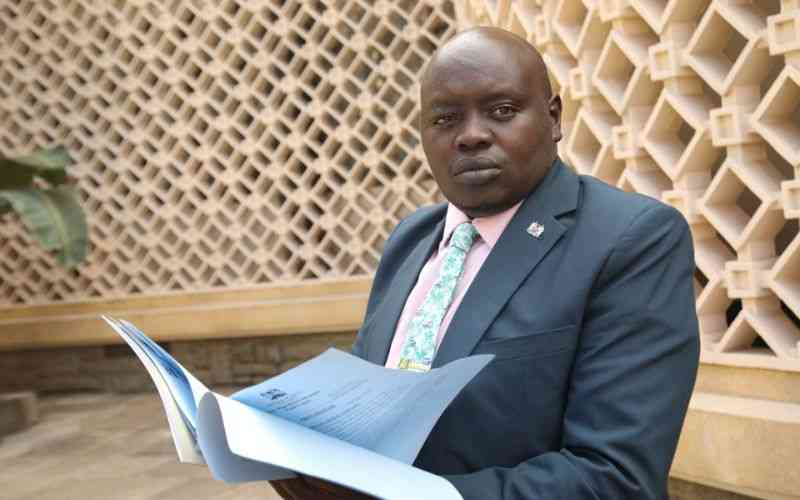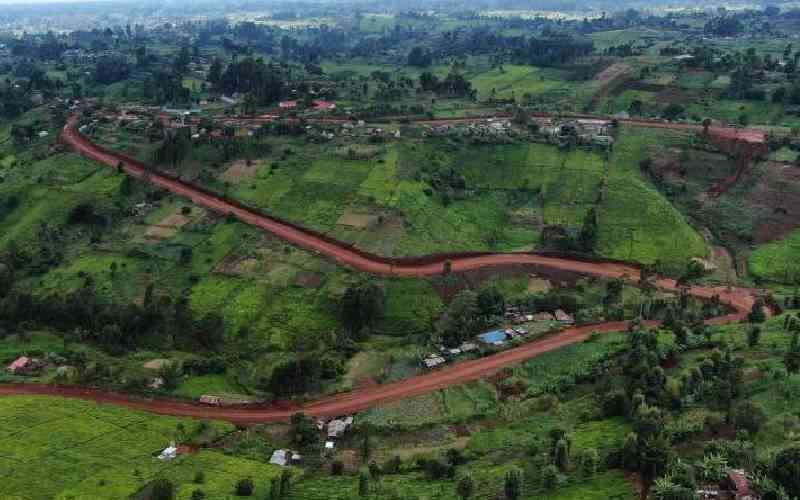
A Nakuru pastor narrates how despite the numerous challenges in his eight-year journey to build his own house, the dream is finally coming true, reports PAUL KARIUKI
While the country’s housing industry continues to report a deficit, the mortgage market is hardly growing. This is because many are shunning mortgages or buying built houses to painstakingly put up their own houses at their own pace. One such person is Pastor Mike Imbai.
Many reports paint some church leaders as leading an opulent life whereas the flock that sustains their lifestyle wallows in poverty.
But as I recently found out, this cannot be said of many men and women of collar. Some hold jobs to sustain themselves and their families, as tithe collections may be too little to sustain them.
A pastor in the process of constructing his house told me it is a tedious journey. He and fellow pastors in Lanet in Nakuru County had come together and formed a pastors association to cater for members’ welfare.
Theologically and denominationally, they may be worlds apart, but a common denominator — their welfare — is what brought them together. They have managed to save some money, which has made it possible for their members to buy parcels of land.
Before acquiring his plot, Pastor Mike, as he is known, says the process is rigorous.
When he heard of plots being sold within commuting distance of the church, he first verified the authenticity of the land with the Ministry of Land at district headquarters. He wanted to be sure it was not public land reserved for some major project like road construction.
“When I heard of cheap land offer not far from here, I first made site visits and checked with relevant land department,” the 40-year-old preacher says.
He had to forgo purchasing a ‘good’ plot as buyers were only issued with allotment letters instead of title deeds. He did find another plot not far from here. Before purchasing, he had to verify some issues first.
He was again at the district lands board, verifying who the true owners were and whether there was any dispute or anyone third party staking claims on the land. He says checking with special lands boards costs Sh5,000, while the regular board charges Sh700.
Buying land
Land in built-up areas tends to be expensive. He advises any would-be buyer to make site inspections before committing to purchasing a parcel of land.
“Don’t rely on a broker’s word. The place I declined to purchase the cheap parcel is stony, which is perhaps why rates may seem attractive,” he says, noting that a similar plot close to a highway will cost much than in underdeveloped areas. If a plot is serviced — connected to piped water and power lines — expect its value to be high.
Stay informed. Subscribe to our newsletter
As he embarks on building his dream home, he gives me estimates, worked out jointly with a builder, of what it will cost him.
Clearing the site of thicket, cutting down of some trees and gorging out of stumps has already cost him about Sh5,000.
The estimated cost of the proposed six rooms, excluding toilet and bathroom, is Sh90,000 per room — from excavation, laying of foundation, first casting, labour and material.
The foundation will cost about Sh200,000. This will take up about 50 bags of cement, sand (ten lorries on average while building at Sh7,000 per lorry) and ballast (one lorry costing Sh5,000). Overall, he will need 150 bags of cement each at a cost of Sh750 per bag.
Dressing of stones for exterior walls will cost Sh30,000, paying the dressers at Sh6 per foot. Building stones, inclusive of fencing, will cost him Sh195,000 at Sh13,000 per lorry. That makes it 15 lorries in total.
For labour, the budget stands at Sh400,000, but this is bound to go up with as construction progresses. For example, rain may prolong work, making him spend more on workers’ wage. The proposed fundi’s daily wage is Sh800, while the assistants will take home half that amount. He plans to have the house completed in three months.
Wood for trusses are projected to cost Sh130,000, while roofing materials (red iron sheets) will cost Sh180,000.
“For windows and doors, I will engage jua kali artisans to make three double metal doors and nine windows,” he says.
Interior
For interior doors, he plans to have seven T&G doors, each costing Sh3,000, totalling to Sh21,000. He plans to use plain glass panes whose estimated cost is Sh3,000.
“What about wiring and plumbing?” I ask him. His wiring projection is Sh50,000 while the plumbing comes down to Sh20,000, all inclusive of electrician and plumber’s wages.
Ceiling for all the rooms is projected to cost Sh50,000, the same amount required for painting the rooms.
Excluding the already paid out land clearing labour, all the provisional total costs come to Sh1,748,000, including that of the gate to be made at the cost of Sh50,000.
Add Sh800,000 for the plot purchase and you will see why he is about to reap the fruits of his eight years of sweat soon.
As he forges on, Maina joins a long list of Kenyans who have and are building their own homes.
 The Standard Group Plc is a
multi-media organization with investments in media platforms spanning newspaper
print operations, television, radio broadcasting, digital and online services. The
Standard Group is recognized as a leading multi-media house in Kenya with a key
influence in matters of national and international interest.
The Standard Group Plc is a
multi-media organization with investments in media platforms spanning newspaper
print operations, television, radio broadcasting, digital and online services. The
Standard Group is recognized as a leading multi-media house in Kenya with a key
influence in matters of national and international interest.
 The Standard Group Plc is a
multi-media organization with investments in media platforms spanning newspaper
print operations, television, radio broadcasting, digital and online services. The
Standard Group is recognized as a leading multi-media house in Kenya with a key
influence in matters of national and international interest.
The Standard Group Plc is a
multi-media organization with investments in media platforms spanning newspaper
print operations, television, radio broadcasting, digital and online services. The
Standard Group is recognized as a leading multi-media house in Kenya with a key
influence in matters of national and international interest.










